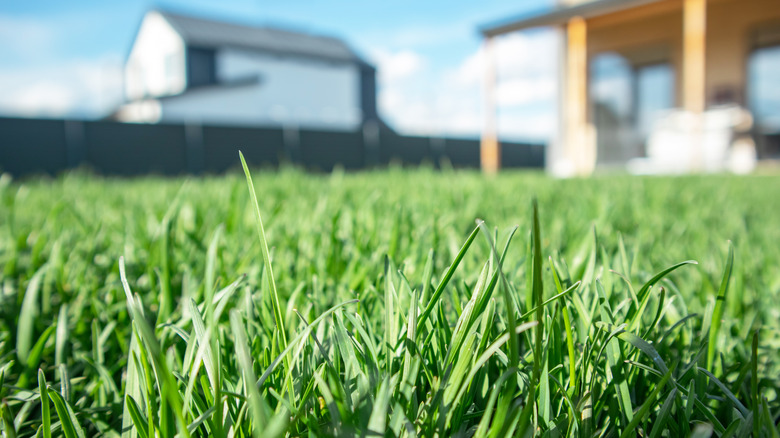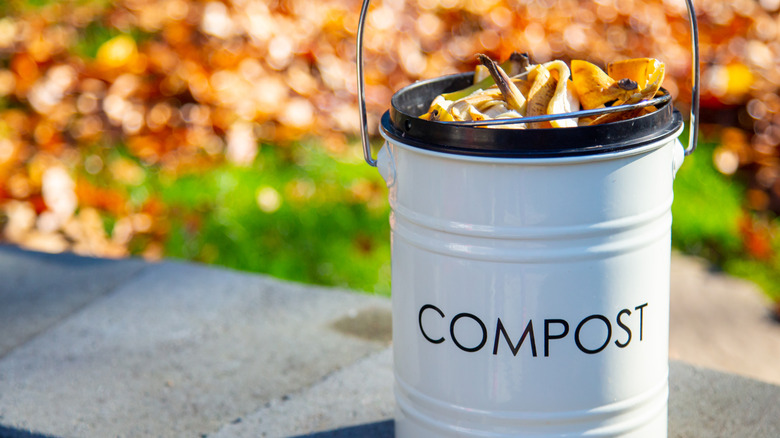How To Fertilize Your Lawn For Lush, Green Grass
Dreaming of having that rich, carpet-like lawn you see in home magazines? Using compost as fertilizer might be your best bet to achieve that, as it is one of the natural ways to keep your lawn green. Unlike synthetic fertilizers that give your grass a quick and sometimes overwhelming burst of nutrients, compost delivers a steady and gradual release of all the good stuff your grass needs to grow healthy and greener. Using compost as fertilizer is also pretty straightforward and doesn't require fancy equipment.
A day or two before you plan to apply compost on your grass, water your lawn deeply so the soil becomes soft and moist and ready to absorb nutrients. Once the grass has dried a bit, sprinkle a thin and even layer of compost right over the top. Don't go overboard; only put enough that you should still be able to see the grass blades poking through. Afterward, give your lawn a light watering or time your composting right before a gentle rainfall to help it settle into the soil.
The ideal time to apply compost on your lawn is during early spring, right when your grass is waking up from winter dormancy and needs that nutrition boost. Compost can also be applied after aerating your lawn, as the small holes will allow the organic matter to combine easily with your soil. If you have thin or patchy grass, add compost before overseeding to give the new grass seed the perfect bed to sprout in.
Why compost works so well for grass
Since not all soil is rich in nutrients, compost works by improving your yard's soil profile so that it can nourish your lawn grass with the essential elements it needs to grow healthier, thicker, and greener. Compost slowly releases nitrogen, phosphorus, and potassium, which are essential for healthy grass growth. This steady release is crucial to match the growth cycle of the grass, providing it with vital micronutrients every step of the way.
In states that regulate the use of heavy nitrogen fertilizers, compost is a safe and sustainable alternative. Landscaping professionals even promote it as a way to organically treat the lawn while improving its soil structure. Landscaping professionals recommend applying a thin layer in early spring, with additional light applications through the summer to maintain that lush green look. They caution, however, against piling compost too thickly, as this can suffocate the grass. They have also pointed out how compost attracts earthworms and beneficial soil microbes, both of which aerate the soil naturally and recycle nutrients.
Another reason to favor compost over synthetic fertilizers is the cost. The former is relatively inexpensive, and homeowners can even make DIY compost from kitchen scraps and yard waste. When done right and paired with regular watering at the best time of the day for hydrating plants, you are guaranteed to achieve that healthy, green lawn you've always dreamed of.

